Thirteen Flinders projects have found success this week with the Australian Research Council, awarded more than $9 million across the ARC's Discovery and Linkage schemes.
The funded projects include vital medical projects through to climate change, sustainable materials, housing and preserving Australia's cultural history.
The $8.5 million awarded in this round of the ARC Discovery Project scheme is the highest amount ever received by Flinders, ranking the university 12th nationally and second in SA.
Deputy Vice-Chancellor (Research) Professor Ray Chan says this week's funding is an excellent achievement for all involved, allowing the continuation of projects tackling some of Australia's greatest challenges.
"I congratulate all our researchers, from project leads through to the many research team members across the university," says Professor Chan. "These are significant projects and it's wonderful to see the ARC reward them.
"Discovery and Linkage projects are about collaboration and long-term benefits for Australia and beyond; the breadth of projects Flinders has been funded for demonstrate we are successfully working across disciplines to find real-world solutions and expand knowledge in areas of key importance."
The funded projects are:
ARC Discover Grants
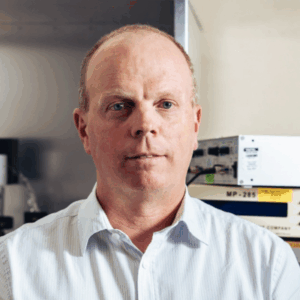
Professor Damien Keating, College of Medicine and Public Health, $1,052,031
Unravelling a gut-brain pathway regulating fluid intake.
Fluid intake must be strictly regulated to maintain proper fluid balance. Control of drinking involves multiple pathways, including signals derived from the gut inform on fluid volume and osmolarity. However, how the gut senses fluid intake remains unknown. We have discovered a specific cell type and ion channel in the gut responsible for sensing fluid intake and initiating a signal to the brain to cease drinking. The thirst response to dehydration is essential for proper health but is reduced in the elderly, driving health burdens related to dehydration, cognition, kidney function and cardiac events. Study outcomes will unravel this complex but important physiological system and inform future strategies for managing fluid imbalance.

Professor Colin Raston, College of Science and Engineering, $854,414
Mechano-driven decomposition of water to hydrogen peroxide and hydrogen.
This project aims to harness mechanical energy in water from high shear submicron topological fluid flows in forming nano-particulate metastable hydrogen peroxide (and hydrogen) for silica hybridisation, water treatment and degradation of plastics. This project expects to generate new knowledge for controlling peroxide formation in water, impacted by magnetic fields and surface textured features. Expected outcomes of this project include understanding the properties of unprecedented metastable hydrogen peroxide, its applications, and understanding the impact of silica on atmospheric ozone. This should provide significant benefits in water treatment and purification, plastic degradation, education and climate change.
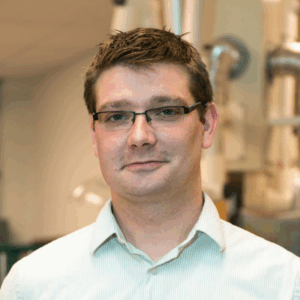
Professor Justin Chalker, College of Science and Engineering, $815,689
A platform for chemically recyclable polymers.
This project aims to investigate a new trisulfide metathesis reaction discovered by the project team, and use it to make recyclable polymers. The project anticipates generating new knowledge on how to make many classes of polymers using this reaction, define their properties and scope of use, and develop new methods to convert the polymers back to monomers at the end of their service life. Expected outcomes include new types of plastic, rubber, foams and fibres that can be made, and un-made; addressing sustainability and pollution problems from non-recyclable polymers we currently use. Anticipated benefits include new concepts in polymer chemistry, recyclable materials for industry, and environmental benefits from reducing polymer waste.

Dr Luke Grundy, College of Medicine and Public Health, $797,499
Unravelling the neurophysiology of bladder sensation.
This project aims to reveal the unique features of bladder-innervating sensory nerves that are necessary for detecting pathogenic infections. Combining electrophysiological sensory nerve recordings with cutting-edge spatial and single cell omic tools, this project will identify and characterise the nerves innervating the bladder that respond to harmful stimuli and initiate protective reflexes to restore bladder health. This project will advance sensory neuroscience by delivering a world-first functional and transcriptional view of the peripheral sensory pathways supporting bladder function. By fully understanding how the bladder senses its environment, this knowledge will accelerate future drug discovery for common bladder disorders.
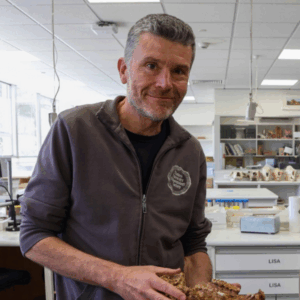
Professor Gavin Prideaux, College of Science and Engineering, $790,564
Determining the ecological roles of Australia's megafaunal marsupials.
This project aims to address the near-total lack of ecological knowledge on the unique large herbivores that became extinct in Australia by 40,000 years ago. By uniting global expertise in palaeontology, ecology and geochemistry, it will employ a novel range of methods to generate foundational knowledge on diets and distributions, transforming our view of large marsupial species and the structure of past communities. The project will shed light on environmental impacts of their extinction, and provide a framework for better understanding how modern ecosystems evolved. This is expected to better contextualise Australia's vulnerability to large invasive species and fire, and to offer a more data-driven basis for resolving extinction causes.

Professor Anna Ziersch, College of Medicine and Public Health, $736,290
Enhancing housing and optimising inclusion and health for refugees.
This cross-national project aims to explore the links between housing, social inclusion and health for refugees, in order to improve settlement outcomes. Using innovative methods and participatory approaches it will generate new knowledge on how housing experiences affect social inclusion and health and ways to optimise settlement outcomes. Expected outcomes include new insights on the impact of housing experiences on social inclusion and health, interdisciplinary collaborations, and practical recommendations to improve social and health outcomes for refugees. Key benefits will include improved policies to promote social inclusion and health for refugees, fostering international collaborations, and empowered refugee communities.
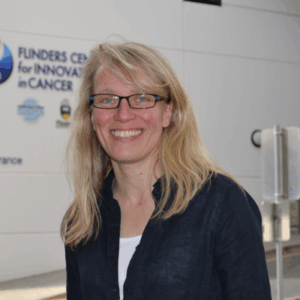
Professor Janni Petersen, College of Medicine and Public Health, $682,465
Metabolic control of genome integrity – Insight into mechanisms.
This project investigates how caloric restriction enhances organism fitness by improving DNA repair through the Target of Rapamycin (TOR) pathway, a key nutrient and energy sensor in all eukaryotes. Preliminary research has revealed a novel energy-dependent mechanism by which the TOR pathway boosts DNA repair. This interdisciplinary project will use innovative methods to provide new insights into the effects of caloric restriction on DNA repair. Expected outcomes include fundamental insights into the energy regulation of genome integrity to enhance organism fitness, new knowledge benefiting both basic and applied biology across all eukaryotes, potential future interventions in longevity and cancer research; fostering global collaborations.

Associate Professor Zhongfan Jia, College of Science and Engineering, $660,787
Electroactive Polymers for Energy-Effective Desalination Batteries.
This project aims to develop an all-polymer desalination battery containing no metals. It will study a new mechanism for the electrochemical salt-in/salt-out effect of polyelectrolytes during simultaneous ion removal and energy storage. Expected outcomes include an all-polymer battery designed for salt removal from seawater with high efficiency and safety. By combining such desalination batteries with solar and wind farms along the coast, the efficient use of renewable energy to address Australia's energy-water crisis is highly anticipated. The benefit includes new water resources suitable for agriculture and breeding industries and extends to polymer antifouling and anti-corrosion coatings for marine industries and civic applications.

Professor Michael Wenzel, College of Education, Psychology and Social Work, $638,135
"Not Our Future": How Future Social Identity Fuels Reactionary Movements.
This project aims to investigate the psychology underlying the formation of reactionary social movements-groups that push back against or try to undo progress toward greater rights, equality, and dignity. By considering how a group's view of its future may be shaped by its present or past, this project expects to generate a new understanding of reactionary attitudes: as stemming from rejection of social changes seen to lead to a future at odds with a desired group identity. Expected outcomes include a novel tripartite model of reactionary movements, international collaboration and advanced insights on this pressing topic. Findings will benefit national intelligence agencies' efforts to support national security and protect social progress.
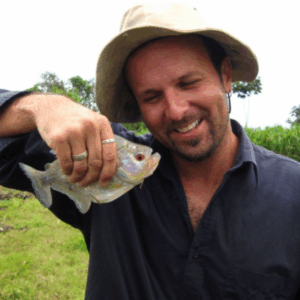
Professor Luciano Beheregaray, College of Science and Engineering, $584,698
Adaptive introgression and rapid evolution to climate change.
This project aims to use a high-impact Australian system to study how introgression (the movement of genes between species) might increase the ability of biodiversity to keep pace with climate change. Through integrated fieldwork, lab experiments and cutting edge genome sequencing it expects to discover the genomic basis and the fitness consequences of introgression in two ideal Darwinian laboratories to study adaptation - an elevational gradient and a subtropical-temperate transition zone. The project will assess the value of introgression as a management tool, tackling a major unresolved issue in conservation biology, empowering natural resource managers, and positioning Australia at the forefront of conservation science.

Professor Chris Hay, College of Humanities, Arts and Social Sciences, $539,661
Archiving the Critic Counts: Archiving Theatre Criticism Down Under.
Critical writing about theatre is under threat. This project offers a solution by creating a sustainable online archive of theatre criticism in Australia and Aotearoa New Zealand. This invaluable resource of the critical past will then underpin the production of original national theatre histories to reveal under-represented narratives and identities. In focussing on the critics, this research aims to document a new perspective on the development of distinctive national theatre cultures down under. Expected benefits include documentation of the history of the evolution of the critic down under, an open-access directory of critics, and more timely preservation and dissemination of national cultural history via an online tool.

Professor Sarah Wheeler, College of Business, Government and Law, $359,746
Sustainable farming and groundwater behaviour in a climate-stressed world.
Climate change will continue to affect farming globally. Water use by farmers, in addition to other activities, will need to adapt and become more sustainable. This project seeks to further understand the drivers of farm adaptation in Australia, especially groundwater use and managed aquifer recharge, and to compare with farm adaptation in the south-western United States and New Zealand, countries that also face significant transitional issues. Increased groundwater use in many regions requires society to consider new water sources, historical water allocations, and behavioural change among farmers, and to understand the relationship among farmers' climate change attitudes, risk perceptions and sustainable farm production decisions.
ARC Linkage Grants
Professor Sarah Wheeler, College of Business, Government and Law, $642,045
Project partners: Department for Environment and Water; South Australian Water Corporation; Murray-Darling Conservation Alliance Ltd
Known as the driest inhabited continent on Earth, Australia faces ongoing water security issues, particularly within the Murray-Darling Basin. Water challenges can be too much, too little, or too dirty, invoking the need for robust but highly adaptable policy. In partnership with key local and national end-users, this project aims to advance understanding of freshwater security issues via state-of-the-art economic research to develop novel tools that significantly advance water demand/supply planning and implementation by government and stakeholders. This new capability will enhance collaboration between policy-makers who will be better positioned to deliver against contemporary water challenges, and meet water security for all.






